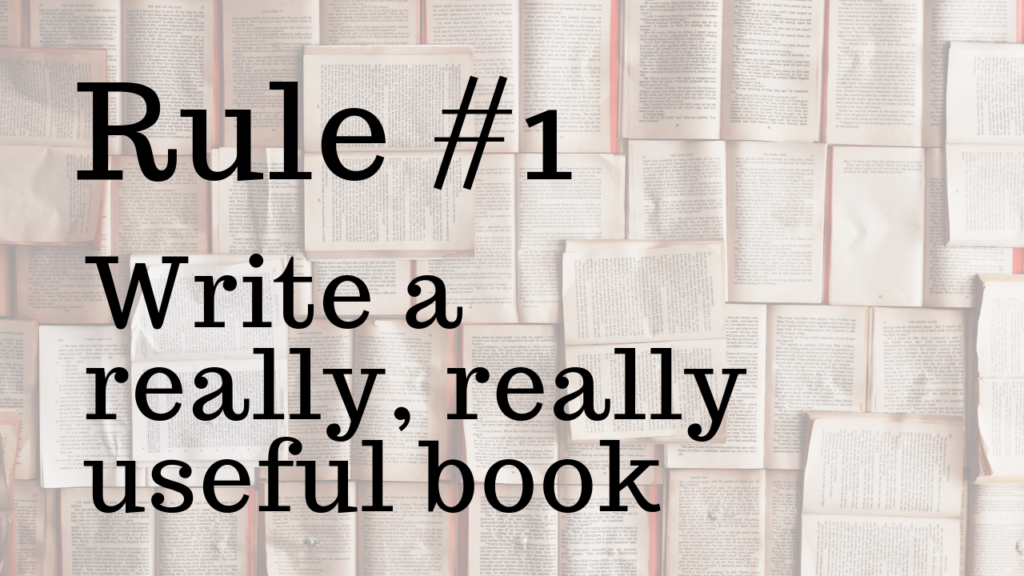
There is one (and only one) thing that matters about your book.
And that’s your reader.
In other words, it’s your customer.
It’s the person who buys your book with the expectation that they will get more value from it than the amount they paid for it in cash and time.
Everything else is secondary.
Forget the testimonials. Forget the sales. Forget the cover design. Forget the money and the reviews.
Ignore all that noise because it doesn’t matter as much as your customer.
If you focus primarily on writing your book with your reader in mind, then you are going to be successful as an author.
Which brings us to Rule #1, defined as follows:
Rule #1: Write a really, really useful book.
That’s it.
A simple but very profound rule which should be your North Star throughout the entire book-writing process.
It’s a rule that keeps your attention focused solely on your reader.
You might ask, “What does ‘useful’ really mean?”
Here are three explanations:
1) Useful means helpful
When someone buys a nonfiction book, they’re typically looking to solve a specific problem or to address a pain point that they have. So give them a helpful book that solves their issue by challenging yourself with the following question: “How will my reader’s life improve after they read my book?”
2) Useful means short
Your book should be short and concise. Many people have this misconception that a publication has to be the size of an aircraft manual to qualify as a legitimate book. But that’s not true. Most readers don’t have a lot of time to go through an endless manuscript. They want to get to a solution as fast as possible, and without having to sift through a mountain of fluff. So focus on making your book long enough to get the point across. No more, no less.
3) Useful means well written
Finally, your book should be well written. This doesn’t mean that your book needs to be worthy of a Pulitzer Prize. It just means that you give it your own personal best. Of course, the book should flow properly in terms of content and be free of mistakes in spelling and grammar. But you should also go above and beyond to make your book a great experience for your readers, and not just slap something together for the sake of being able to say you’ve written a book.
The bottom line about Rule #1 is this: your readers should be happy that they spent their money and their valuable time on reading your book.
So make it helpful, make it short, and write it well.
P.S. This is an excerpt from a podcast called “Writer on the Side” that helps employees write their first book while working a full-time job.
You can subscribe on Apple Podcasts, Google Play, Spotify, or Stitcher (or, if you’re new to podcasts and would like to listen on the website, click here).